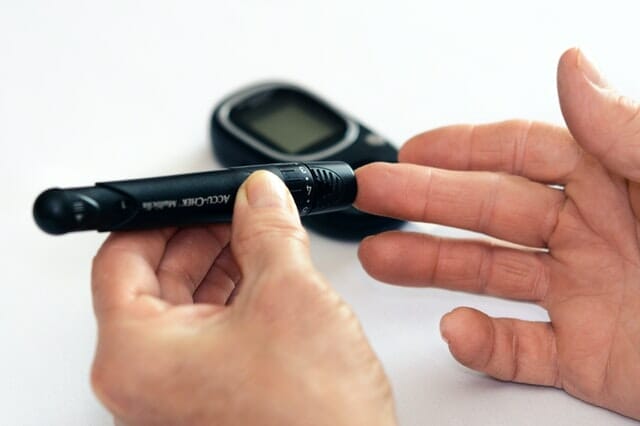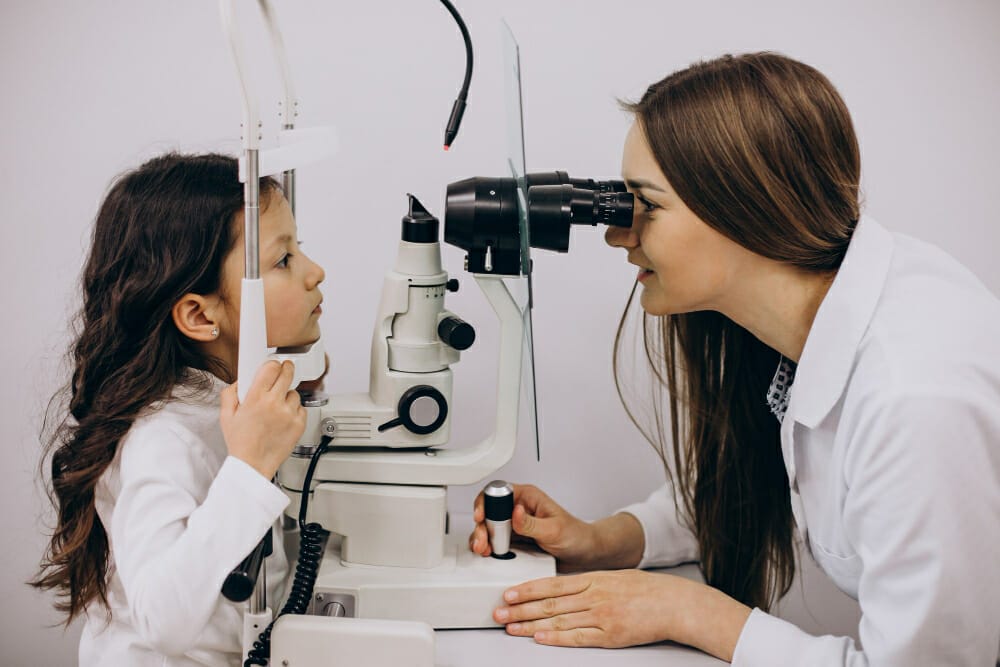What to Expect During a Routine Eye Exam
A routine eye exam typically consists of several tests to evaluate your vision and eye health. For individuals with diabetes or high blood pressure, the eye exam may include additional tests to check for eye problems related to these conditions. Our caring optometrists use the latest technology to ensure accurate diagnosis and eye health management for all our patients.
Visual Acuity Test
This test measures how well you can see letters on a chart from a distance. This test helps determine if you need glasses or contact lenses to correct your vision.
Refraction Test
This test determines your exact prescription for glasses or contact lenses. The test involves looking through a device called a phoropter, which contains lenses of different strengths. You will be asked to choose which lens provides the clearest vision.
Eye Muscle Test
This test checks how well your eyes work together and how well they can move. The test involves following a moving object with your eyes while keeping your head still.
Glaucoma Test
This test checks for increased pressure inside your eyes, which can damage the optic nerve and cause vision loss. The test involves using a device called a tonometer to measure the pressure inside your eyes.
Dilated Eye Exam
This exam involves using eye drops to widen your pupils, allowing our eye doctor to examine the back of your eye, including the retina and optic nerve. With our state-of-the-art technology and highly trained optometrists, we strive to provide the best eye care services and eye health management for individuals with diabetes or high blood pressure.
Additional Tests for Individuals with Diabetes or High Blood Pressure
Our optometrist may recommend additional tests to provide the most accurate assessment of your eye health and address any concerns related to your diabetes or high blood pressure, ensuring optimal vision health.
Retinal Exam
This exam involves using a special camera to take pictures of the back of your eye, including the retina and optic nerve. The images are then examined by our eye doctor to detect any signs of diabetic retinopathy, a common complication of diabetes that can cause vision loss.
Optical Coherence Tomography (OCT)
The Optical Coherence Tomography (OCT) is a non-invasive imaging test that uses light waves to take detailed pictures of the retina. The test can help detect and monitor eye problems such as macular edema and macular degeneration, which are common complications of diabetes.
Electroretinography (ERG)
The ERG is a cutting edge device that bounces electromagnetic signals and measures the response against a large dataset to identify the onset and severity of eye disease. This is a powerful tool in identifying changes to ocular cellular health from diseases such as diabetes before permanent damage has occurred.
Visual Field Test
This test measures your peripheral vision, which can be affected by glaucoma. The test involves looking straight ahead while lights are flashed in your peripheral vision.















